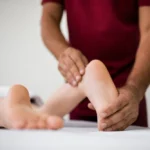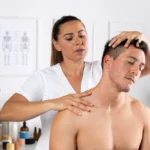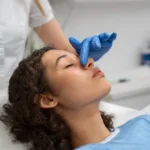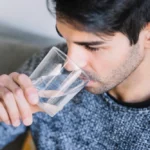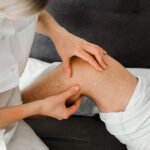What is Rheumatoid arthritis in a modern perspective?
Rheumatoid arthritis (RA) occurs when the body’s immune system malfunctions and attacks our healthy tissues in addition to its normal enemies, such as bacteria and viruses. This causes inflammation of joints and other parts of the body which leads to pain, swelling in the joints and may eventually cause osteoarthritis and joint deformities. The exact cause of rheumatoid arthritis is not clearly known. Ayurveda experts believe that RA may be the result of different factors –
- Preconditioning causes – Genetics, lifestyle & environment;
- Trigger causes – Bacterial or viral infection, hormonal changes, and stressful events.
What is Rheumatoid arthritis in Ayurveda perspective?
Vata-Rakta is a spectrum of diseases which is due to the imbalance of Vata and impaired functioning of the Rakta dhatu (can be correlated to blood tissue, though it is not completely correct). Several diseases of autoimmune nature, including Rheumatoid arthritis are treated using the treatment principle of Vata-Rakta at Back to Roots Ayurveda Healing Retreat in Kerala.
Ayurveda explains the causative factors of Vata-Rakta in 2 categories:
- Pre-conditioning cause – which causes imbalance or impairment of Rakta Dhatu: Excess consumption of salty, sour, pungent tasted foods, alkaline & fatty foods, overly hot food, consumption of putrefied or dried meat, meat of aquatic animals and fish, meat of animals which lives in heavy rainfall and dense forests areas, seeds after extraction of oils, radish, horse gram, black gram (urud dal), green leafy vegetables, grated meat, sugarcane, curd and yoghurt, fermented foods, vinegar, butter milk, alcoholic preparations, eating food while having indigestion, incompatible food, eating food before digestion of the previous food, sleeping in the daytime, anger, keeping awake at nights, Indulgence in sweet foods and not having habit of exercise etc. results in the impairment of Rakta dhatu.
- Acute cause – these acute causes can result in Vata-Rakta in a patient who has a Rakta impairment due to the Pre-Conditioning causes. These are – injuries, ignoring seasonal panchakarma, excess indulgence in astringent, bitter and dry food items, fasting, travelling in rough roads, water sports, excessive exercises, excess walking in hot sun, excess indulgence in sexual activities, suppression of natural urges results in the imbalance of Vata.
Two questions can arise here. Why do some of us even after engaging in the aforementioned dietary and lifestyle practices not get afflicted by Vata-Rakta? Does occasional consumption of these items result in the disease – Vata-Rakta? Thankfully we all have a 3 layered innate defense mechanism to prevent a disease:
- Resistance against causes: Body with it’s natural process of creating aversion to certain foods and lifestyle makes a protective layer against the possible causes.
- Resistance against dosha kopa: When Vata is imbalanced due to cold wind exposure – resulting a muscular pain, our body will instinctively show an aversion to further cold exposure and will display an affinity for opposite quality – ie for warmth.
- Resistance by strength of body tissues which is a result of genetic and environmental factors. This opposes a disease progression.
Are there any early symptoms of Rheumatoid Arthritis to take precautionary measures?
Vata-Rakta displays some early signs and symptoms; if treated at this stage, we can prevent the progression of the disease. There are some interesting observations made by Charaka with regard to the early signs and symptoms – excessive or absence of sweating, blackish discoloration of the body, impaired sensation of touch, looseness of joints, tiredness, appearance of boils on body, heaviness, numbness and itching in joints, remissions and relapse of pains and aches, appearance of skin lesions are the premonitory symptoms of Vata-Rakta.
What are the common signs & symptoms of Rheumatoid Arthritis?
Common sites of Vata-Rakta infliction are – hands, feet, fingers and all other joints. Typical signs and symptoms of Rheumatoid include – Tenderness, warmth or swelling in the joints, morning stiffness of joints, fatigue and fever or feverish symptoms. Rheumatoid arthritis usually affects the smaller joints – ankles, wrists, toes and fingers and then it progress to knees, hips, and shoulders. Rheumatoid arthritis is also associated with issues in our skin, eyes, lungs, heart, kidneys and blood vessels. The signs and symptoms of RA may vary in intensity and it may disappear in between. Rheumatoid arthritis can cause deformity of joints and result in early degenerative changes of joints called Osteoarthritis.
Are there different types of Rheumatoid arthritis?
Two major types of Vata-Rakta is mentioned in the Ayurveda text books – Superficial and Deep manifestations. Subdivisions like Vata, Pitta, Kapha, Rakta dominated version are also there. Ayurveda uses the treatment principle of Vata-Rakta in the management of several auto-immune disorders. For example, gout is treated as Pitta dominated Vata-Rakta; while Sjogren’s syndrome or Ankylosing spondylitis is treated as Vata dominated Vata-Rakta. Modern medicine explains about 2 different types of Rheumatoid arthritis as Seronegative RA and Seropositive RA. In Seronegative RA, RA factor and anti CCP will be absent while in Seropositive, the antibodies are detected in blood.
Is Ama Vata different from Vata-Rakta?
One might see, different views by Ayurveda doctors in India; some approach Rheumatoid arthritis as Ama-Vata. Concept of Aama is used in Ayurveda to denote the toxic accumulations in the body due to impaired digestive process, xenobiotics, post-infectious toxin accumulations etc.
Aama can be associated with any disease – be it Rheumatoid arthritis or a Skin disease. Common symptoms of Aaama associations are – fever or feverish sensation, lack of strength in the body, heaviness, lassitude, lack of appetite, increased salivation in mouth, incomplete evacuation of stool, reduced taste for food etc. The Ayurveda treatment approach to Rheumatoid arthritis is different according to the stage; in Aama associated stage, oil applications or ghee preparations are contra-indicated while, non-Aama stages respond well to oil therapies.
Do Ayurveda have a treatment for Rheumatoid arthritis?
Yes, Ayurveda offers a time-tested treatment strategy which includes internal medicines, Panchakarma treatments, and body therapies for treating Rheumatoid arthritis. The approach of Ayurveda treatment for Rheumatoid arthritis involves:
- Avoid the cause – Diet & Lifestyle modifications
- Medicines for Aama – if the disease is in Aaama stage
- Purify the Rakta dhatu – improve quality functions
- Reduce inflammation in joints (balance Vata) with medicines or through Panchakarma
- Strengthen and rejuvenate the affected joints and body (Nutrition, Tonics)
- Prevent the early wear & tear of joints
As per conventional theories, there is no cure for rheumatoid arthritis. Also, many drugs used to treat rheumatoid arthritis have potentially serious side effects. Ayurveda medicine and therapies can safely and effectively reduce inflammation in your joints. This relieves pain and prevent or delay joint damage. Back to Roots Ayurveda Hospital in Kerala, gives clinically significant improvement in rheumatoid arthritis on a par with other medicines with the added advantage of lesser side-effects.
Are there any do’s & don’ts while undergoing an Ayurveda treatment for Rheumatoid Arthritis?
Ayurveda specifies several Pathya (to favor) and Apathya (to avoid) in the treatment of a disease. One should not confuse that these restrictions are because of the medicine intake; these restrictions are rather disease specific.
- Favor: Aged barley, wheat, brown rice, Navara rice; meat of cage-free birds; pigeons; soup of lentils, peas & chickpeas – can be consumed added with plenty of ghee. Green vegetables like asparagus, buds of goat-willow, black nightshade (Solanum nigrum), meat soups.
- Reduce or Avoid: Day time sleep, exposure to excess heat, excessive exercise, and eating excess spicy, sour, salty, hot potency, heavy to digest foods. One should also reduce – meat of animals from wetlands (like pork, crabs, prawns, duck etc) and fish, radish, horse gram, black gram (urud dal), jaggery, sprouts, sesame products, uncooked vegetables, curd and yoghurt, fermented foods, vinegar, and alcohol.
What are the treatments available in Back to Roots Ayurveda Healing Retreat?
Back to Roots Ayurveda Hospital in Kerala offers authentic treatments in the management of Rheumatoid Arthritis. We follow a traditional approach to the Ayurveda treatment of Rheumatoid Arthritis which includes internal medicines, external applications, oil therapies and Ayurveda massages, Panchakarma treatments, Rasayana, In-house food and more. There may be 100 Ayurveda medicine for Rheumatoid arthritis and another 10 Ayurveda massage therapies. The crucial aspect is the timely administration of the most appropriate medicine and therapy at
the right stage of the condition. Errors in this regard can result in adverse results than positive outcome. This precision can only be achieved through extensive studies and experience of the
Ayurveda physicians. A panel of expert Ayurvedic doctors in Kerala guided by Dr. Shyam discuss each cases before preparing a treatment plan.
- Suitable external treatment and Ayurveda massage for Rheumatoid arthritis includes: Lepam, Abhyangam, Pizhichil, Upanaham, Podikkizhi, Naranga kizhi, Navarakkizhi, Janu vasthy etc.
- Single herb remedies for Rheumatoid arthritis include: Guluchi (Tinospora cordifolia), Shallaki (Boswellia serrata), Turmeric (Curcuma longa), Silajith (mineral pitch), Bhallathaka (Semecarpus anacardium), Castor (Ricinus communis), Aswagandha (Withania somnifera), Guggulu (Commiphora mukul), Ginger (Zingiber officinale), Rasna (Alpinia galanga) etc.
- Ayurveda medicines for Rheumatoid arthritis include: Amrithotharam kashayam, Rasnerendadi kashayam, Kokilaksham kashayam, Rasna panchakam kashayam, Manjishtadi kashayam, Gugguluthikthakam kashayam, Punarnavadi kashayam, Yogaraja guggulu, Kaisora Guggulu, Chandraprabha, Amrutharishtam, Shaddharanam choornam, Gugguluthikthakam ghritham, Indukantham ghritham etc.
- Panchakarma treatments for Rheumatoid Arthritis: Virechana, Vasthy, Raktamoksha, Nasya Contact our helpline for more enquiries on the treatment of Rheumatoid Arthritis:
- Doctor Helpline: +918281500177
- General Inquiries: +917902710070


